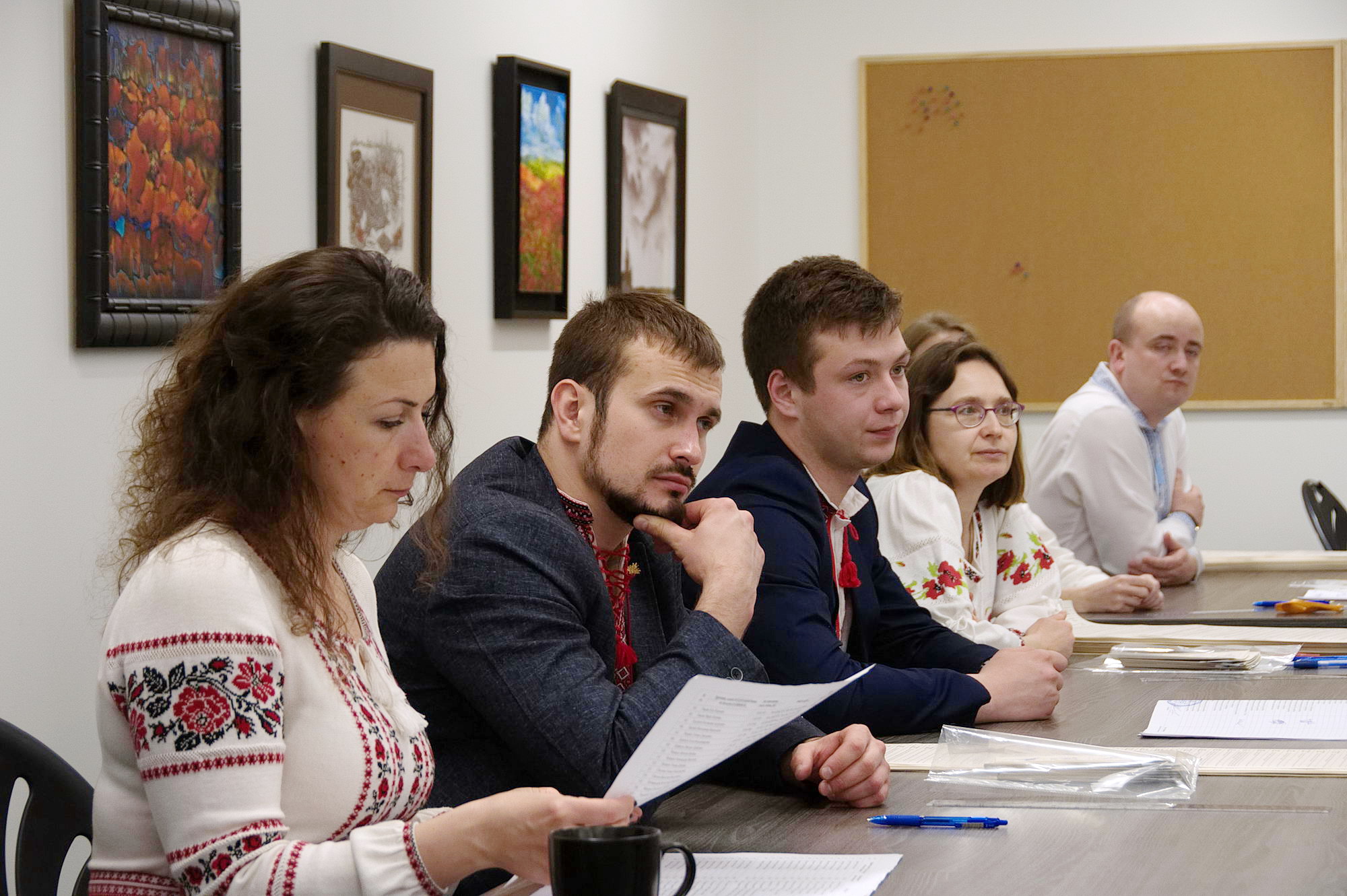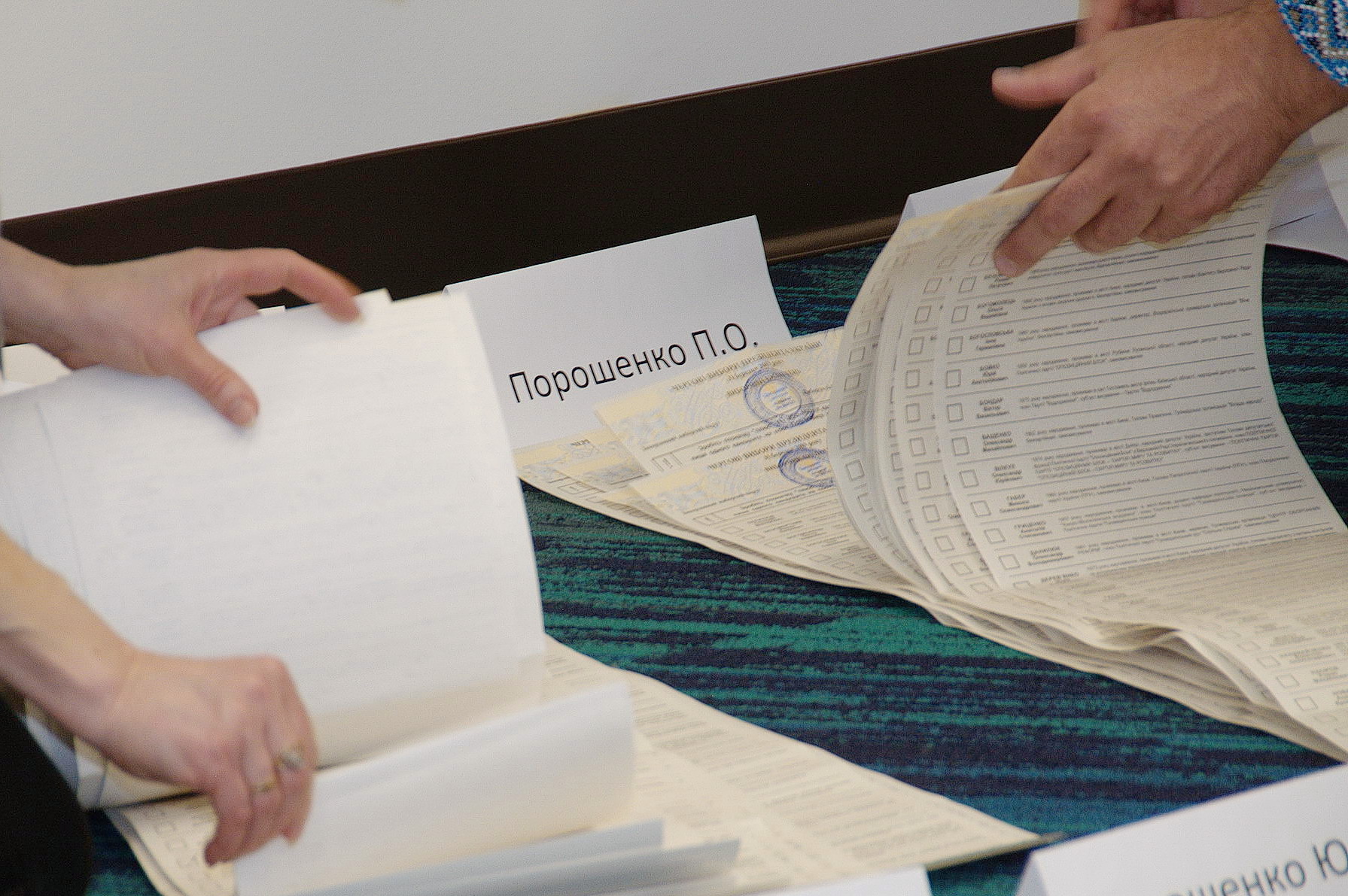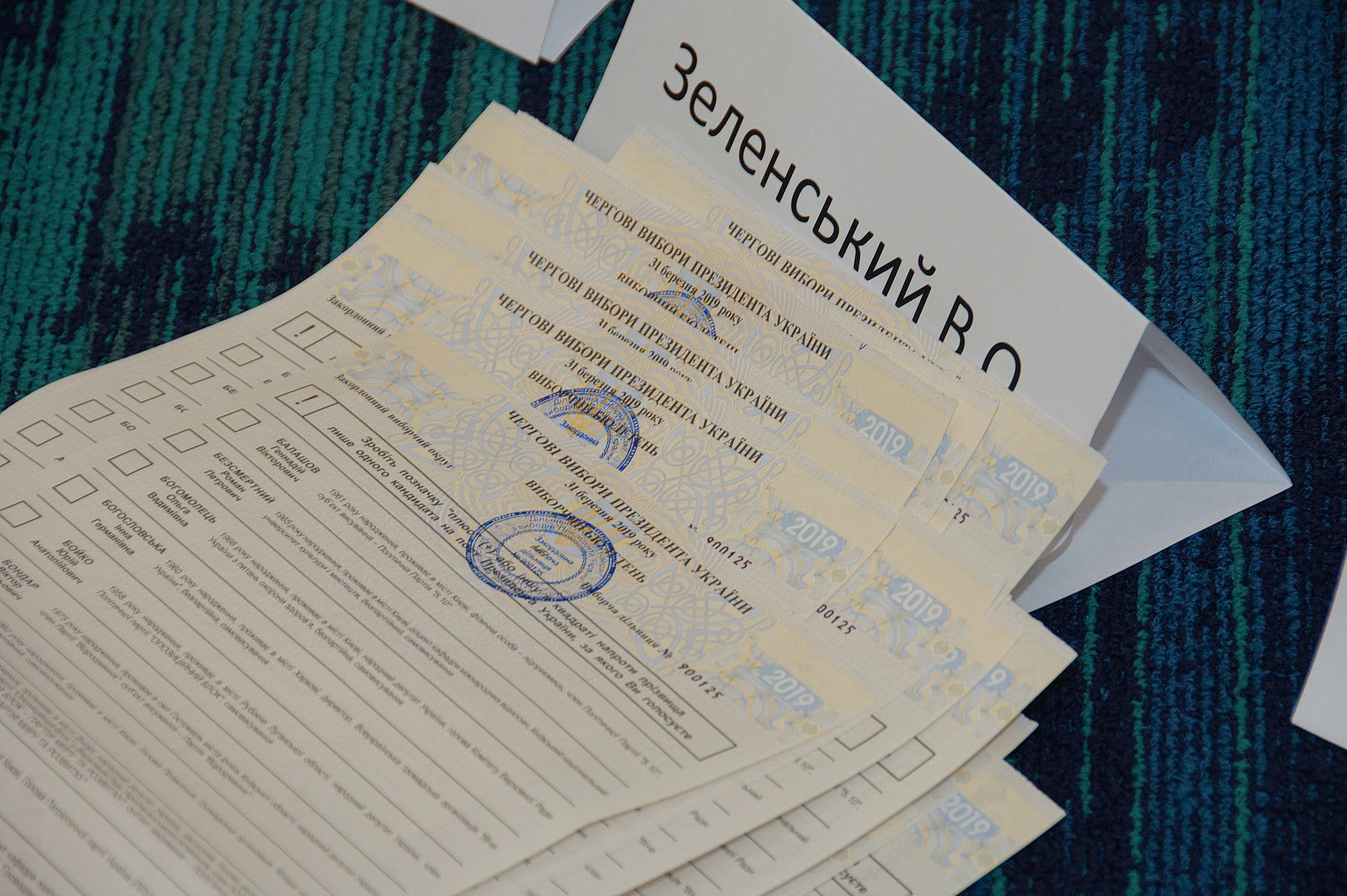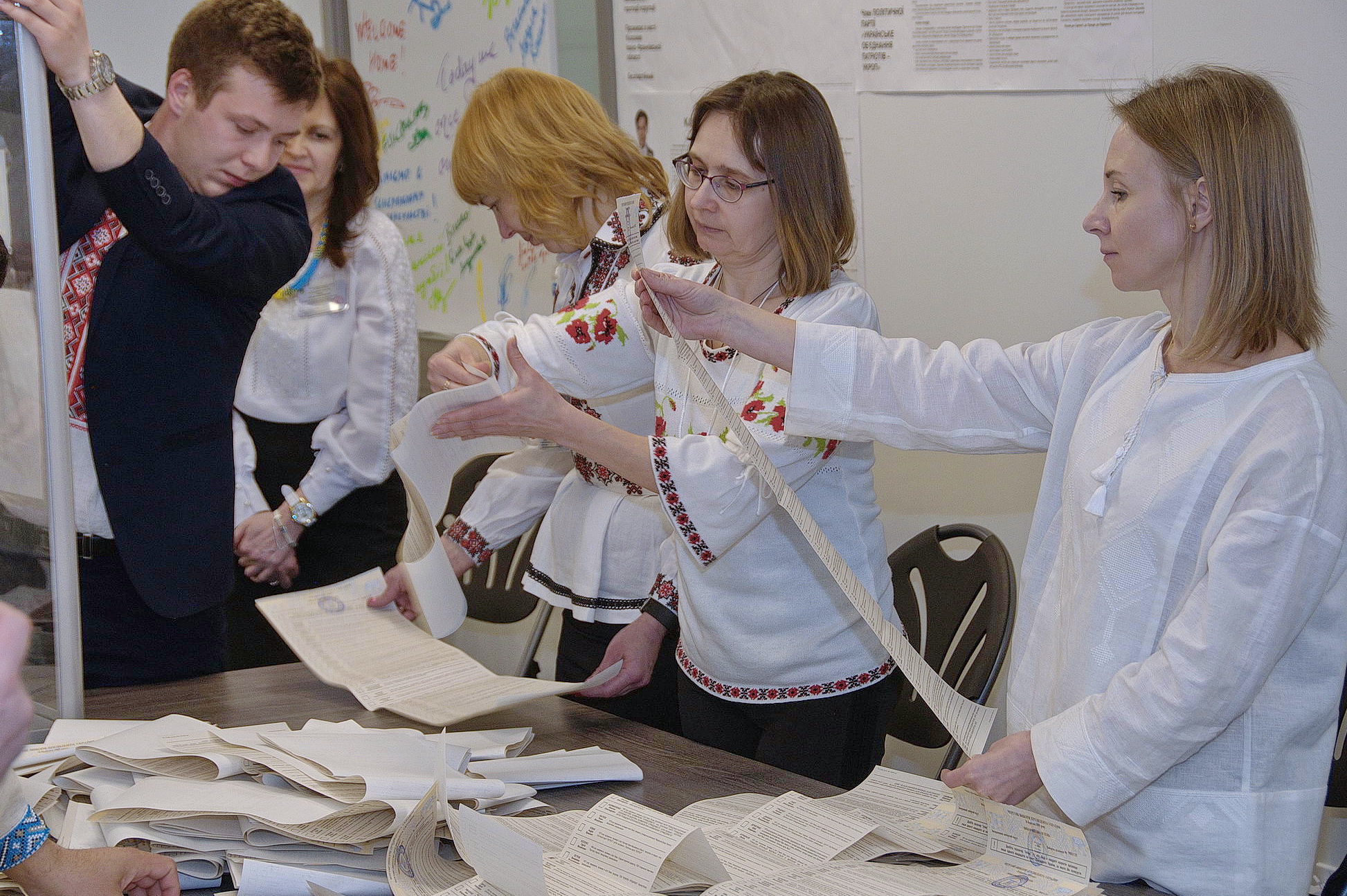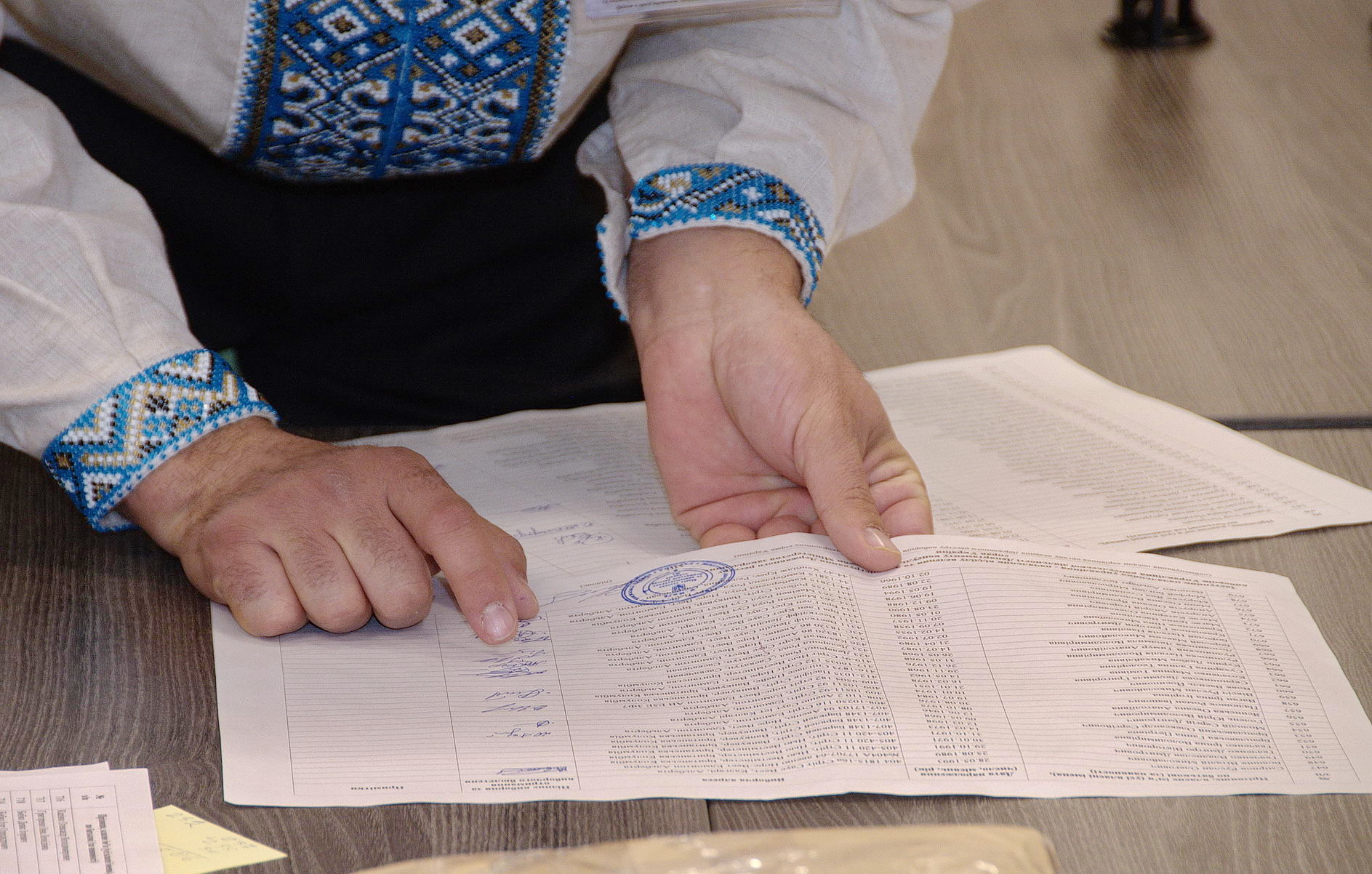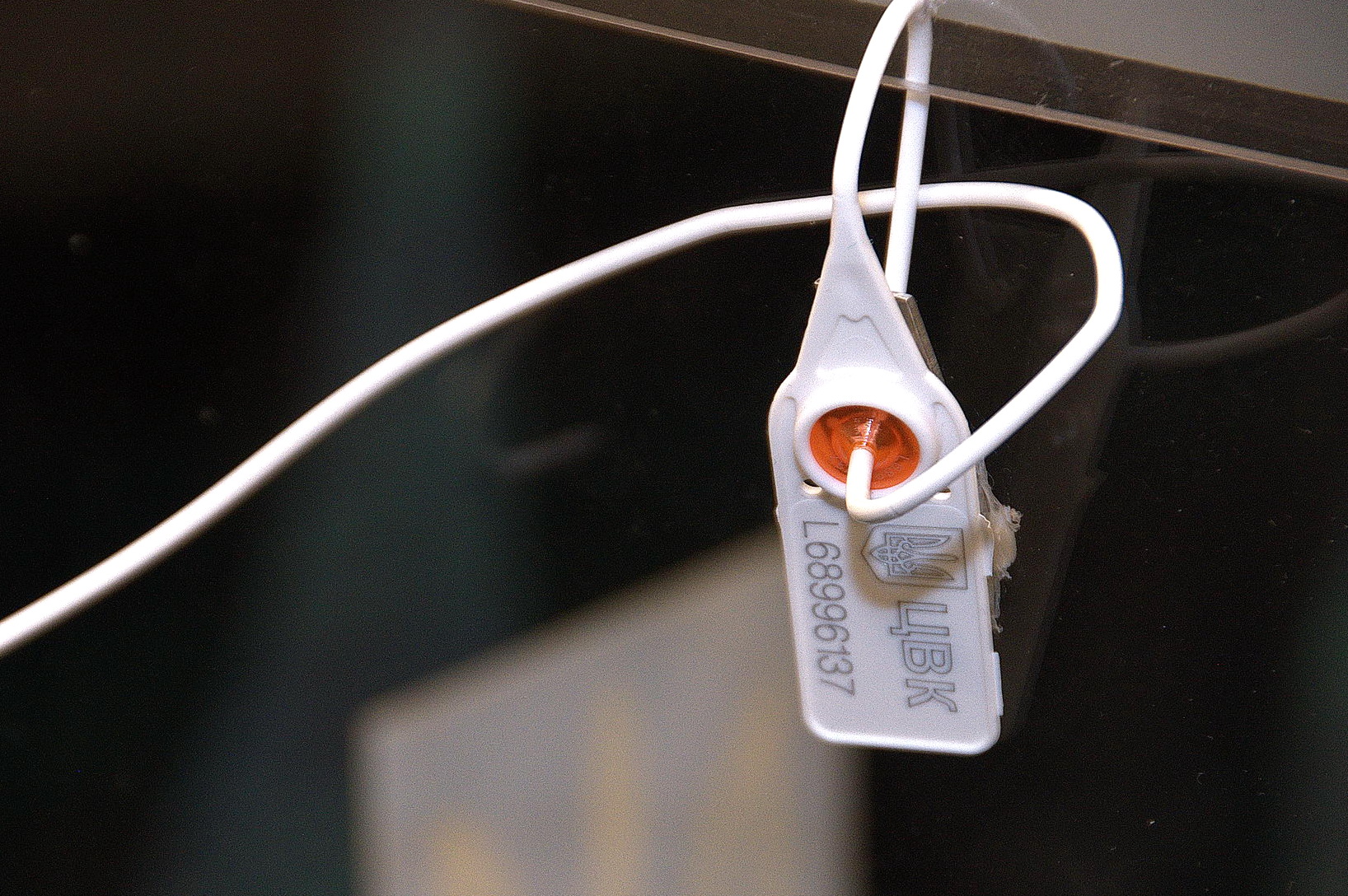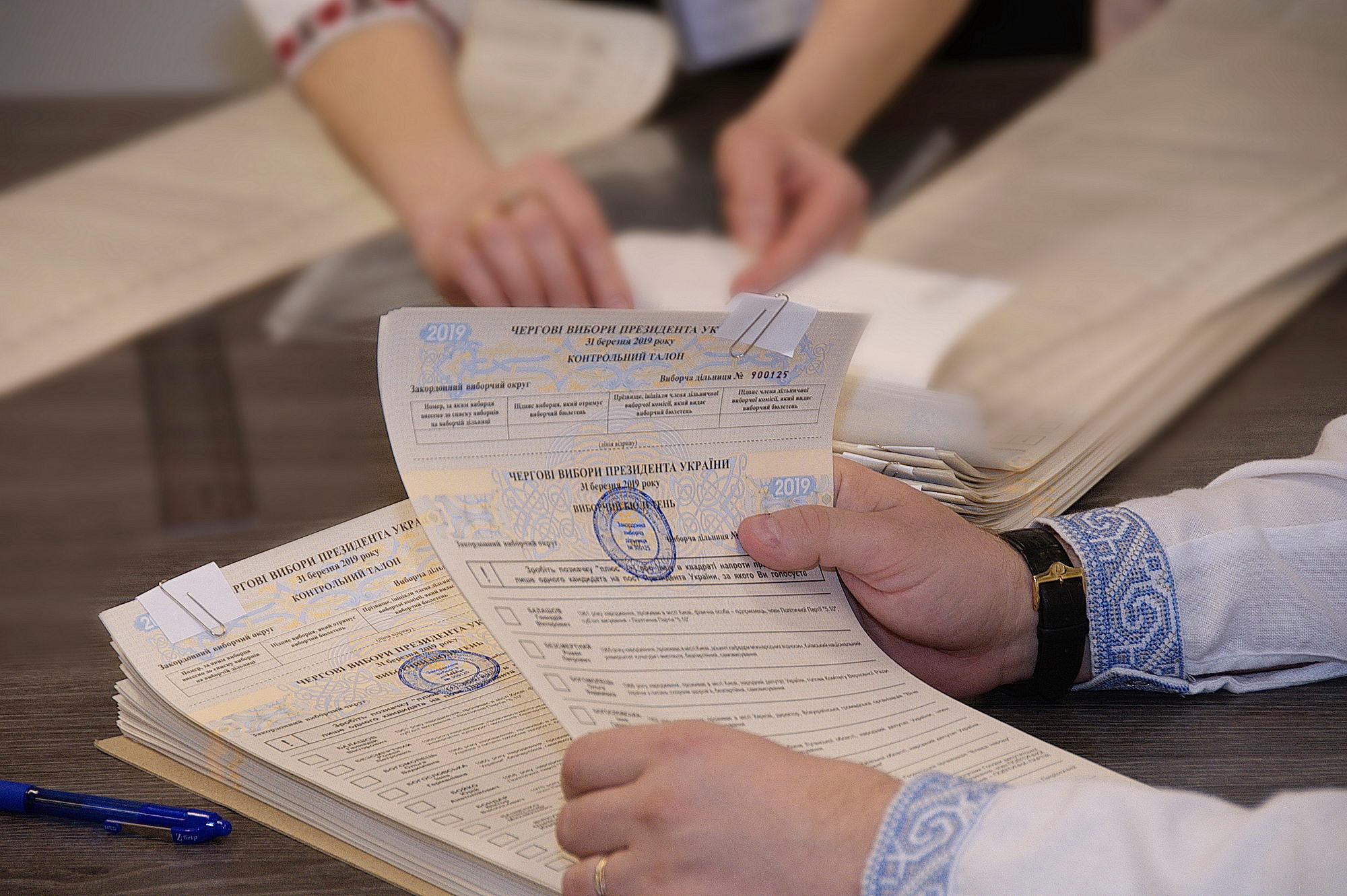EDMONTON, Canada – Showman and comedian Volodymyr Zelenskiy may have taken a remarkable lead in the first round of Ukraine’s presidential election, winning in 19 out of 24 oblasts, but if the election were up to Ukrainians voting from overseas, the outcome would have been far different.
With all the votes from 101 foreign polling stations already counted, Ukraine’s incumbent President Petro Poroshenko, not Zelenskiy, was the man of the night. The incumbent received 38.6 percent of support, followed by Zelenskiy with 26.1 percent.
Support for the remaining 37 candidates also differed between Ukrainians living abroad and those in Ukraine. Former Prime Minister Yulia Tymoshenko finished a distant sixth place, far worse than her third place performance at home.
Former Defense Minister Anatoliy Hrytsenko came in third with 10.6 percent of votes, a far stronger showing than his fifth place finish in Ukraine.
More than 55,000 Ukrainians living abroad voted in the presidential election on March 31 – almost the same number as the population of Antratsyt, a city in Luhansk Oblast. However, this is 18,000 less than the turnout of 2014 elections when almost 73,000 took it to polling stations.
After the first round Poroshenko wins a landslide victory in 53 countries, including Canada with 49.9 percent, while also snatching the lead in Switzerland, Norway, Thailand, Ireland, Australia, Montenegro (all with between 53 and 59 percent).
Zelenskiy won the majority of votes in Poland, Czech Republic, Slovakia, Latvia — the most popular destinations for Ukrainian labor migrants and seasonal workers.
Yuriy Boiko, a former energy minister representing the Russia-friendly Opposition Platform, was the leading candidate among Ukrainians in Estonia and Moldova.
Vasyl Voronovsky, a former Ukrainian TV host now living in Edmonton, backed the incumbent president.
“I know about what he’s done not only from the news or Facebook,” Voronovsky explained. “When I was a journalist in Ukraine, I mostly covered the defense sphere and visited military enterprises and could see how it has all modernized. I also traveled to the east of Ukraine as a volunteer helping the 24th brigade almost weekly, so I knew what’s going on.”
He said that those “who see changes, like open borders with Europe, an independent Ukrainian church,” voted for Poroshenko.
“Those who became victims of political manipulation, or various journalistic ‘investigations’ like Bihus’ uncovered schemes in defense (Editor’s note: A report by the investigative team Bihus.info aired on March 11 showed that almost every law enforcement agency in Ukraine helped cover up corruption in state defense conglomerate UkrOboronProm) voted for Zelenskiy. But overall I’m not surprised with the results.” In the second round, Voronovsky said, his vote will not change.
Tetiana Tsukrova, a Ukrainian living in London, said that the “current leader supports a Western course for the country and, unlike Volodymyr Zelenskiy, has achievements with the (European Union) to back him up.”
“His policies resonate with people who live outside of Ukraine.” Tsukrova said, adding that she backed former Defense Minister Anatoliy Hrytsenko in the first round.
Oleksii Prokopenko from New York city shares the view. “I think that citizens who supported the incumbent president did so based on the ideas and reforms that are incorporated in state policy now must be brought to the real result: joining the EU and NATO,” he said. “However, there is also an issue with internal politics where there are a number of systemic problems with the rights and freedoms of citizens, their social protection and economic indicators.”
According to him, the preliminary results of the elections in Ukraine indicate the desire of Ukrainians to see new political approaches and strategic decisions.
“I, personally, voted for strategy and the right of Ukrainians to live freely in their own country,” explained Prokopenko, a volunteer at Razom for Ukraine (United for Ukraine), a non-profit organization.
The views of residents of Ukraine and those abroad are no longer in harmony, as they were in many parts of the country in 2014, said David Marples, Chair of the Department of History & Classics at the University of Alberta.
“The voting patterns in the diaspora are very similar to those on the Galician regions of western Ukraine, the only areas in which Poroshenko received most votes,” Marples explained to the Kyiv Post. “Both in the diaspora and Halychyna, the focus has been much more on nationalist issues: the success of de-communization; creating a strong army that can prevent further Russian intrusions; elevating the Ukrainian language and preventing the spread of Russian in the education system and the workplace; and establishing a national church.
For many, Marples argues, Russian annexation of Crimea in 2014 and the war in the Donbas were parts of a self-fulfilling prophecy, “namely that Russia, whether led by Putin or other leaders, has – as part of its raison d’etre – the destruction of an independent Ukraine.”
In other parts of Ukraine, the priorities are different. Most residents of Ukraine perceive the current batch of political leaders exemplified by Poroshenko and Tymoshenko as “part of a tired and recurring pattern of oligarchs” mainly interested in their own self-betterment and very distant from the real concerns of the people.
The current economic situation has also influenced voting. Daily life for many Ukrainians is poor and dismal with the average wage at just $350 a month, and the 25-percent hike in natural gas prices last year was a severe blow to many households.
“Most residents of Ukraine are worse off than they were five years ago. They see that corruption has not been overcome, despite the avowed intentions of the Poroshenko leadership. They are much less interested in the language issue, religion, and throwing off all ties with Russia,” Marples explained. “They seek possibly an illusory future and for the moment Zelenskiy best embodies these hopes: charismatic, young, and above all not linked to the current political hierarchy.”
Marples said that diaspora Ukrainians who still hold citizenship have over the past two years adopted a very blinkered view of the Poroshenko’s presidency as one upholding Ukrainian values and national identity.
“Poroshenko can be identified as a political leader with very diverse views at different times in his career: as a founder of the Party of Regions, as a close associate of Yanukovych and Yushchenko, as a politician who can adapt — seemingly at will – to changing circumstances,” he said. “Ukrainians have seen reformers come and go, an unseemly squabble with a former protege Saakashvili, court cases that are never completed against corrupt figures, and even a failure to conclude an investigation of the mass slaughter in Maidan in February 2014. None of this has augured well. His total votes constitute a dramatic failure given the state apparatus and media at his disposal.”
However, none of this indicates that an untried TV comedian is the answer to Ukraine’s problems. “This is a negative anti-Poroshenko vote rather than a pro-Zelenskiy one,” Marples said.
